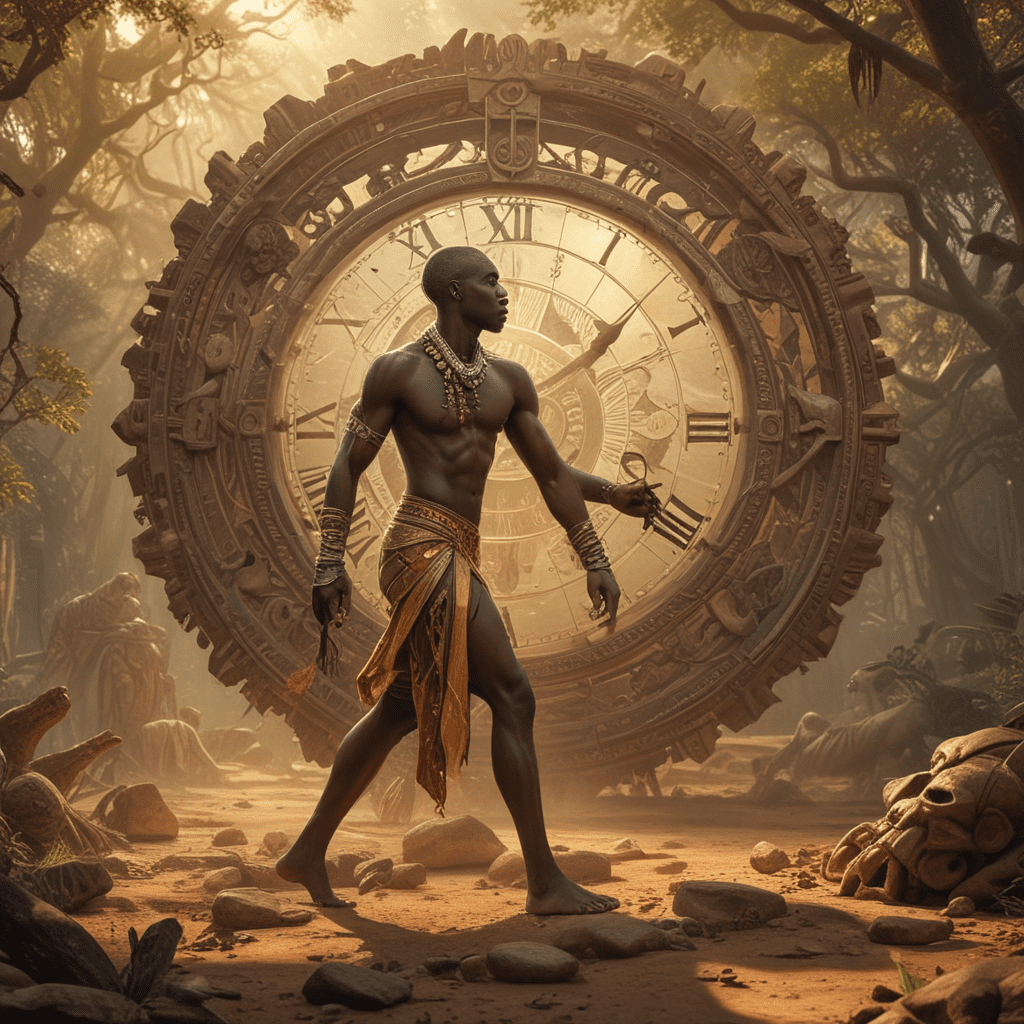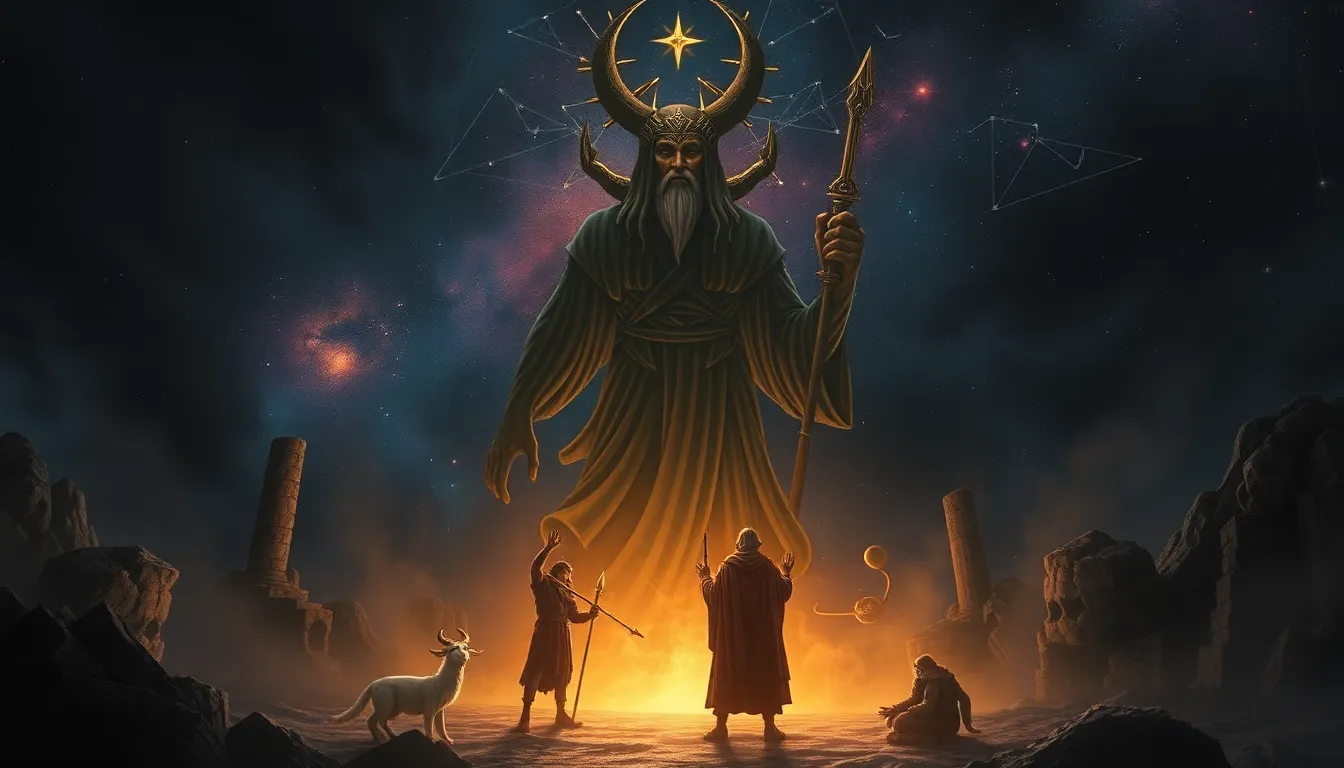The Concept of Time in African Mythology
Time is a fundamental and enigmatic concept that has intrigued philosophers, scientists, and artists throughout history. In African mythology, the concept of time is particularly rich and diverse, reflecting the region's vast cultural and spiritual heritage.
I. Introduction
In African mythology, time is often perceived as a more fluid and flexible concept than in Western thought. Many African cultures believe in a cyclical view of time, where the past, present, and future are interconnected and constantly flowing into one another. This cyclical understanding of time is often associated with the concept of reincarnation, where individuals are reborn into the world after death.
II. The Cyclical Nature of Time
The cyclical nature of time is evident in many African myths and legends. For example, the Yoruba people of Nigeria believe in a cycle of existence called the "Orirun," which includes life, death, and rebirth. According to Yoruba mythology, each individual has a predetermined destiny, or "ori," which unfolds over the course of multiple lifetimes.
III. The Linearity of Time
Alongside the cyclical view of time, some African cultures also recognize the concept of linear time. In linear time, events occur in a sequential and irreversible order, from the past through the present and into the future. This linear understanding of time is often associated with the concept of history, where events are recorded and remembered in a chronological order.
IV. The Non-Linearity of Time
In addition to the cyclical and linear views of time, African mythology also includes non-linear or non-sequential conceptions of time. In these myths and legends, time is not experienced as a steady progression but rather as a more fluid and subjective experience. For example, the Dogon people of Mali believe in a concept called the "nommo," which is a fluid and flexible force that flows through time and connects the past, present, and future.
V. The Mythical Origins of Time
Many African myths and legends describe the origins of time and its relationship to the creation of the world. In some myths, time is said to have emerged from the primordial chaos at the beginning of creation. In other myths, time is associated with the birth of the first gods or ancestors. These myths often provide a foundation for understanding the cultural and spiritual significance of time within African societies.
VI. The Cultural Significance of Time
Time holds immense cultural significance in African societies. It is often perceived as a sacred and powerful force that governs the rhythms of life and the cycles of nature. Many African cultures have developed elaborate systems of timekeeping and divination, which are used to understand the past, present, and future. For example, the Ashanti people of Ghana use a complex system of calendars and festivals to mark the passage of time and ensure the well-being of their community.
VII. Time and Ancestors
In African mythology, time is closely linked to the concept of ancestors. Ancestors are revered as powerful spirits who watch over their descendants and guide them through life. Many African cultures believe that the living and the dead exist in a continuous cycle of existence, and that ancestors can influence the lives of their descendants through their actions and prayers.
VIII. Time and Creation
Time is often seen as an essential element in the creation of the world in African mythology. Many myths and legends describe how the gods or ancestors created the world out of chaos or nothingness. Time is often depicted as a force that brings order and structure to the universe. For example, the Dogon people of Mali believe that the universe was created through a series of rhythmic pulsations, which represent the passage of time.
IX. Time and Transformation
Time is also associated with the concept of transformation in African mythology. Many myths and legends describe how individuals or objects undergo dramatic transformations over time. These transformations can be physical, spiritual, or both. For example, the Yoruba people of Nigeria believe that a person can transform into an animal or a god through the use of magic or ritual.
X. Time and the Future
In African mythology, time is not always perceived as a linear progression. Many African cultures believe that the future is not set in stone but rather is fluid and can be shaped by human actions. This belief is often expressed in the concept of destiny, which is seen as a path that individuals can choose to follow or reject. For example, the Zulu people of South Africa believe that each individual has a predetermined destiny, but that they can also make choices that will influence the course of their lives.
FAQ
Q: What is the concept of time in African mythology?
A: Time in African mythology is often perceived as a fluid and flexible concept, with cyclical, linear, and non-linear aspects. It is closely linked to the concepts of creation, ancestors, transformation, and destiny.
Q: How do African cultures view the past, present, and future?
A: Many African cultures believe in a cyclical view of time, where the past, present, and future are interconnected and constantly flowing into one another. However, some cultures also recognize the concept of linear time, where events occur in a sequential and irreversible order.
Q: How is time related to ancestors in African mythology?
A: In African mythology, time is closely linked to the concept of ancestors. Ancestors are seen as powerful spirits who watch over their descendants and guide them through life. Many cultures believe that the living and the dead exist in a continuous cycle of existence, and that ancestors can influence the lives of their descendants through their actions and prayers.



